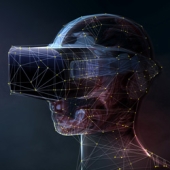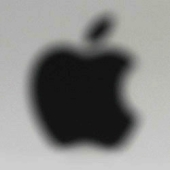IN BRIEF
- 2:27 - This is a big paradigm, potentially a very, very big shift, and this is what we're looking into even though it's still a fairly niche technology right now.
- 10:07 - If it does become that mass market technology, that kind of new paradigm in terms of the internet, there's going to be an awful lot across the board — internal, external, consumer, enterprise, industrial. A lot of new ways of doing things going forward.
- 13:08 - Climate change is the issue of today and if you're talking about the mass market metaverse, it's likely to be using far more data and far more energy, and that could potentially lead to a backlash if the use cases aren't made in terms of the positivity or if the use case is a bit frivolous.
Joe Kornik, Editor-in-Chief of VISION by Protiviti, sat down with Dexter Thillien, the Lead Technology and Telecoms Analyst at The Economist Intelligence Unit (EIU) to discuss the metaverse and its impact on global business, including the key findings of research the EIU conducted on the metaverse. The EIU is the research and analysis division of the Economist Group, providing actionable insights and helping to identify opportunities, trends and risks for business leaders in a complex global environment.
The Economist’s Dexter Thillien: Key findings, forecasts on the metaverse future - video transcript
Joe Kornik: Welcome to the VISION by Protiviti Interview. I'm Joe Kornik, Editor-in-Chief of VISION by Protiviti, our global content resource looking to the future to examine the big themes that will impact the C-suite and executive boardrooms worldwide. Today we're exploring the metaverse and I'm excited to be joined by Dexter Thillien, the Lead Technology and Telecoms Analyst at The Economist Intelligence Unit to discuss the metaverse and its impact on global business, including some key findings of research the EIU conducted on the topic. The EIU is the research and analysis division of The Economist Group, providing actionable insights and helping to identify opportunities, trends and risks for business leaders in a complex global environment. Dexter, thank you so much for joining me today.
Dexter Thillien: Great to be here.
Joe Kornik: Dexter, you specialize not just in the metaverse of course, but in sort of a unique space, the intersection between technology, strategy, industry, and geopolitics even. Now, the metaverse means a lot of different things to a lot of different people and we can certainly talk about some of those other definitions or Web 3.0 or XR, AI, 5G, blockchain, but let's start narrow if we could. How do you and how does the EIU define the metaverse and sort of where do you see it fitting into that strategic space going forward?
Dexter Thillien: So we actually have a pretty broad definition of the metaverse. We kind of define it as being an online immersive world leveraging external reality, which can be augmented or virtual reality. You will also be using a lot of different technologies, so we're talking artificial intelligence, we're talking cloud computing, we're talking edge computing, digital twins, the most advanced form of connectivity, so just 5G and fiber, and even crypto-based technology if we start to talk about Web 3.0. So we’re kind of looking into it as a way of the new paradigm in terms of what it is in terms of technology and new ways of doing things to kind of being far more online and new ways of using the internet. So it's kind of a very, very big and it's also something that's going to be used, as you mentioned, not just for consumer, but also for enterprise and obviously, policy makers will look into it as well with greater scrutiny than they might have done in terms of other technology in the past. This is a big paradigm, potentially a very, very big shift, and this is what we're looking into even though it's still a fairly niche technology right now.
Joe Kornik: Right. I know the EIU has recently published some research on the metaverse about its potential impact, investment, usage and how it differs from some of those other technologies, for instance, Web 3.0. What were some of those takeaways and key findings from that research that you could share with us?
Dexter Thillien: Yes. So the metaverse is one of our main key themes for 2023. So we released our “Industry in 2023” white paper, in which we’re the part on telecoms and technology and we’re going to see that [Unintelligible] AI, semiconductors, as well as consolidation in the overall telecom sector.
As I said before, we don't expect it to become a mass market technology in 2023, but we do expect investment to continue to flow. What we highlight for 2023 is kind of the move towards great [Unintelligible]. It has been the metaverse [Unintelligible], so that's going to be a very important development there, potential use cases on the enterprise side, and obviously as well the difference between the metaverse and Web 3.0. While we're seeing the overlap, they’re distinct concepts. Web 3.0 is obviously based on decentralization, and this is ownership around different users, and this can happen outside the metaverse and we've seen it with finance and also de-fi, so decentralized finance; whereas the metaverse can be centralized potentially, so the different types of metaverse is possible. So we're trying to highlight the differences because sometimes they tend to confuse a fair amount of people.
Joe Kornik: I'm just curious, I know that research is a little more near focused. In Vision, we like to look 2030 and beyond or even a decade out, which is difficult to do with something like the metaverse. Do you have a time frame on when you think that the metaverse will be sort of a big game changer for businesses? I mean how far out do you think we need to look for something like that to happen?
Dexter Thillien: I think it’s going to be during the decade it becomes a major technology or major new paradigm. I think for me, it’s important maybe to look back in terms of where we see the metaverse fitting in terms of the evolution of technology and internet. So if you think of the PC era, late 90s-early 2000s, we had dial-up, broadband for kind of a broadband connection, which has created a boom as well as a bust and kind of a lot of different application and companies coming to the fore. So Amazon, Google, and Facebook were created during that first era.
The second era was probably smartphone and mobile connectivity, so in the 2010s, 4G, 5G coming in and led to the creation of kind of apps that we're using everyday—Uber, Instagram. If the metaverse has some of these proponents, say, is becoming kind of that third stage or like kind of third evolution of the internet or technology, so this is a vessel to use of external reality and if it's on par with the previous two, you can see that the impact would be enormous. What we're seeing right now, which I think is very important, that a lot of companies are investing quite a lot because nobody really wants to miss out. Nobody wants to be left behind. Even though it might take a bit of time. It might not happen in 2023 even in 2024-2025 or be towards the latter part of the decade, nobody wants to miss out.
Joe Kornik: Sure. You mentioned those conversations. I'm sure they're happening in in corner offices right now in C-suites and at the board level about steps they should be taking. So what is your advice to business leaders? What should they be doing right now to prepare for that inevitable future?
Dexter Thillien: I think overall, business leaders should be ready to use technology and apply digital transformation solutions. I think we've seen since Covid, so since 2020, it has become a matter of when, not if and I'm very biased because I'm a tech analyst, but when, not if digital transformation will happen and this will occur because eventually every company will become a tech company. I think the metaverse is one of the ways business leaders can transform the company, both internally and externally, but I think it's important not to maybe look at the metaverse as kind of a new shiny technology to be using or try to be kind of ahead of the competition, but to understand why they want to use a metaverse. Just think of outcomes as opposed to technology.
In my view, a successful digital transformation process, you can have the metaverse as part of it. It's about knowing what you want to achieve as a business as opposed to using a specific technology. So if you want to use a metaverse for a specific goal and it’s a critical goal for your business, start looking into it and see how you can apply it to your technology, for your company internally with your employees, so you can apply it externally with your client, but if it's just using the metaverse to put out a press release saying, “Company X is using the metaverse. Look at how advanced we are,” but there's no kind of plan behind it, that's probably going to end up in failure. So knowing what you want to do, the right outcome, and looking at what the metaverse can do, that's the way for me for businesses to think of the technology right now.
Joe Kornik: That's interesting. I think that's one of the big questions around the metaverse is how will it be used? How will it be utilized? Who will be the winners and losers? So when it comes to how businesses will use the metaverse and again, we can look a decade out or more or however long you think before it really becomes a game changer for business, what do you envision?
Dexter Thillien: Yeah. So if we’re seeing the metaverse, as I mentioned, that kind of surge power sway of the internet to do certain [Unintelligible] internet, you can see the implementation is going to be huge. So just an example, maybe you can split it between consumer metaverse, enterprise metaverse, and industrial metaverse. So consumer, or you buy and sell, or you attract new clients, especially younger demographic which are probably going to be using kind of virtual reality or that type of reality a bit more, social interaction, any types of event and entertainment you can think of. Gaming is obviously a big one. In terms of enterprise, about collaboration, training, and education within the company—very, very important. In terms of industrial, kind of maybe operational improvement and kind of development. So maybe a few examples, just the things we’re seeing. In terms of education, we're seeing kind of a fair amount of different schools or different universities looking at augmented reality/virtual reality as a new way to teach different topics.
That kind of leads into training. We think kind of using virtual reality for ongoing training development. So in healthcare, we learn to do specific surgery using a virtual reality handset. You can relate to travel. It can relate to defense, manufacturing, anything you can think of. Digital twins, which is a kind of a virtual replica of the digital asset, again, multiple applications in many, many sectors. We're seeing increasingly metaverse real estate happening, so this is obviously to highlight new product and services to a new range of different users, so the younger demographic targeting there, and a couple of companies specific example of what company have been saying looking in terms of the metaverse.
So Accor, which is a big hotel chain headquartered in France, they're looking at the metaverse as a way to being able to visit the hotel before you go, visit a specific room, look at what’s around the hotel and all the different amenities, so kind of a new ways of doing things with much more virtual, much more immersive as opposed to reading them on the screen or seeing them in the video. You also have Disney. So Disney has a big streaming service with hundreds of millions of users. It also has parks, which also has tens of even maybe hundreds of millions of visitors coming, kind of the metaverse can be the bridge between the two so people that can’t really visit the park physically, they might be able to visit the park virtually at least for certain amenities there.
So there's a lot of different ways and because it's a very, very new, I'm sure I'm going to miss a lot of them and again, if you go back maybe 10 years in terms of what we're doing with smartphone now, what we thought we would be doing with smartphone 10 years ago and not for other things that we couldn't even think of could happen. If it does become that mass market technology, that kind of new paradigm in terms of the internet, there's going to be an awful lot across the board—internal, external, consumer, enterprise, industrial. A lot of new ways of doing things going forward, so it could be a very, very big change for other companies and companies will need to know what to do and we need to implement those changes as well.
Joe Kornik: Sure and the possibilities seem endless and I'm going to ask you about that in just one minute. That's going to be my last question, but my second to the last question is about skepticism because there is quite a bit of skepticism about the metaverse out there. So I was curious to get your opinion on that. Is it warranted? What are some of the potential pitfalls of the metaverse and are there things we should be worried about or things that we should be pumping the brakes on a little bit about the metaverse in terms of whether it's cyber or some other potential pitfalls?
Dexter Thillien: Yes. I think it's right to be skeptical. I prefer to call it realistic. In terms of potential issues of any technology because nothing is ever perfect and always positive. I think for the metaverse I probably can highlight four different ones, which I think are worth looking at. The first one is hype. So very often in the tech world we tend to over hype the technology saying it’s going to change the world and sometimes it never actually does or sometimes it actually takes a bit longer than expected. There’s a famous quote which says that, “We tend to overestimate the effect of technology in the short run and underestimate it in the long run.” So for instance, if you look at blockchain, I've been hearing about blockchain for the past 10 years. Ten years ago it was going to be that huge new thing that everybody was going to use. It hasn’t really happened. There's some very interesting use cases happening, but it hasn’t become that mass market technology so maybe the metaverse has some very, very nice use cases for certain areas, but doesn't become that kind of mass market technology, that mass market paradigm we're expecting right now.
The second would be kind of a lack of standards in interoperability. So if you want to be an early adopter and if you use a standard that's going to become very obsolete very quickly, that's an issue because you're investing into something that basically stops existing very, very quickly. And you can also have potentially your creation of multiple metaverses according to the modern uptake, if you have systems which are way too different, not standardized, not working with each other.
That kind of leads to a third point, which is regulation. Regulation because technology is not geopolitical and strategic, so if you talk of geopolitics, lack of standards. If you have different standards between different countries, that’s kind of an issue, but also strategic, policymakers, politician regulators are scrutinizing the tech sector even more. So issues relating to ethics, to the competitive landscape, to content will in my view be looked at much more closely than they were in the past. So that's something to look into as we develop the technology.
And I think probably a fourth one, you mentioned cyber security, its always going to be an issue with any kind of technology going forward, but I think—and the final one I want to add—is sustainability. Climate change is the issue of today and if you're talking about the mass market metaverse, it's likely to be using far more data and far more energy, and that could potentially lead to a backlash if the use cases aren't made in terms of the positivity or if the use case is a bit frivolous. People would say, “Why are we spending so much energy and so much data to do that when climate change is an issue?” So for me those are the things to kind of look into and to make sure as we develop the metaverse that those issues are being resolved and solved after.
Joe Kornik: So, Dexter, last question for me like I mentioned is about a future world. So if you could take me to 2035 let's say—and there's been a lot of projections and forecasts about what the metaverse could be, its economic impact or the type of jobs or whatnot—I'm just curious to see your overall thoughts. If you could take us to 2035 and tell us what kind of world will we be living in in terms of the metaverse and its impact on our daily lives and specifically our businesses going forward.
Dexter Thillien: So I think if the metaverse becomes from what we expect it to be, we’re more likely to be living far more virtually than we are right now. That doesn't mean 24/7. I don't think we're going to the world where we're going to have a headset any time we’re awake during the day. I think that’s going to be probably a bit weird and probably going to come far later. I think again, it's important maybe to look at the past and try to understand what the future might look like. So I mentioned those three stages earlier and I want to focus mainly on the second one in terms of the mobile revolution in 2010. So we got the first iPhone in 2007. The first 4G network became available around 2010. It was still not very clear where it was going, but this has become ubiquitous and I think if you look at the iPhone, which I think for me it's always something I look into in terms of development of technology or far technology or important technology can be—the iPhone with a revenue of about $20 billion between 2007 and 2009, so doing quite well, but not super high. $30 billion in 2010 starting with 4G, $60 billion in 2011, $85 billion in 2012, and now we're talking about $200 billion in 2022. So this is probably the best case scenario for the metaverse.
There's a drive towards that goal, but this is kind of the best case scenario so we’re kind of going into world the same way that the iPhone or smartphone has become ubiquitous, the metaverse and having augmented glasses or headset that you're using at home or at work to do meetings to do training or to learn or even to watch content. Instead of watching Netflix on the screen, you're watching Netflix on the headset. This is kind of the best-case scenario in terms of where the metaverse, so living in a far more virtual world, far more opportunities to do things, far more kind of 3D as opposed to 2D. So this is where we're going. If you look at the iPhone, which is kind of the best case scenario, again, we've seen the growth going from $20 billion in the first three years to $200 billion a year in just over 15 years, which is not that big of a period of time. So this could potentially happen with the metaverse if everything falls into place.
Joe Kornik: Thanks, Dexter. So a game changer or niche product?
Dexter Thillien: For me, I think it's probably more likely to be a game changer than a niche product because everybody is looking into it. Everybody's looking to invest into it. There's clearly demand in terms of—the first version of the metaverse is happening in terms of gaming which are very successful especially with younger demographic and it’s going to be the one driving it in 10–15 years’ time. The people who are teenagers now are going to be the consumers of tomorrow, within that timeline and they're going to be doing - living in terms of the virtual world that maybe people from my generation which [Unintelligible] smartphone. So I do think we’re probably more likely to become a game changer because a lot of investment, lot of potential demand, and companies are going to want to try to either retain their strength and retain their position in the market or some new ones are going to try to become the new big companies or the new big tech companies from the 2020s and 2030s. So I would say game changer.
Joe Kornik: Thanks for those insights, Dexter, and of course the insights from the Economist Intelligence Unit. Always great to hear your thoughts on the metaverse. Thank you for watching the VISION by Protiviti interview. For Dexter Thillien, I'm Joe Kornik. We'll see you next time.
Did you enjoy this content? For more like this, subscribe to the VISION by Protiviti newsletter.



































